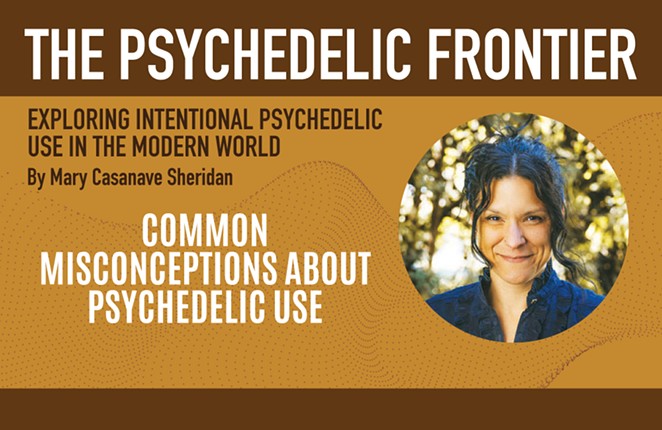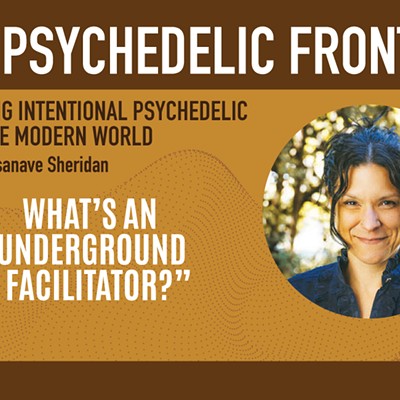Mary Casanave Sheridan is a psychedelic coach and owner of Myco-Vision. Through personalized guidance, she helps individuals explore the transformative power of psychedelics for self-discovery, healing, and growth. Mary is passionate about advocacy and education in the psychedelic space. Through this column she aims to answer reader questions, dispel myths and disinformation, and lend a hand in the creation of a more empowered and well-informed public when it comes to psychedelic substances and their potential.
This column, appearing monthly in the Source Weekly, will answer common questions.
Q: As a psychedelic guide and coach, what are the most common misconceptions you run into?
A: Psychedelic guiding work is often misunderstood, leading to misconceptions about its nature and value. One such misconception revolves around the non-directive approach, what that means and its significance. The non-directive approach entails refraining from interpreting or explain the client's experience and encouraging them to check in with themselves and their own inner knowing to extrapolate meaning and determine the flow and process of their journey.
Many mistakenly equate non-directive with being unskilled or untrained or deduce that in this dynamic the guide isn't "doing anything." In truth, it requires a highly skilled practitioner to effectively remove themselves, their values, goals and judgments from the process. Non-directive guidance demands deep trust, sensitivity and the ability to hold space for the client's unique journey. Skilled practitioners refrain from imposing interpretations on clients' experiences.
The reason for this approach to guiding people through highly suggestible states of altered consciousness is that it allows for their journey to unfold without the guide's personal perspectives or values imposed upon it, thus fostering a deeper understanding of themselves and keeping them safe from confusion or manipulation. Understanding this type of guiding dispels the misconception that it lacks skill or training. It is crucial to the process for the client's healing process to be respected and guides refrain from imposing their own beliefs in a way that could detract from the experience. This approach is effective because it centers the client and their process and keeps any outside views and goals from conflicting with them, leading to deep levels of self-awareness and trust.
Another common misconception pertains to the perceived high cost of psychedelic guidance. It's important to recognize that the financial investment reflects the extensive time, effort and expertise involved in the process, which for a seasoned and effective guide is no small thing. Some may find offense in the commodification of these substances and the accompanying spiritual experiences, with good reason. Allowing space for those valid concerns, all Western guides are still living in capitalistic societies and frameworks and therefore must be paid for their work. The consequence of not providing the healers (and teachers, and other caregivers) in any community with a living wage (and livable workload) is directly seen and felt in the health outcomes of that community. As they say, you cannot drink from a dry well.
In practical terms, most guides can work with at most one to two clients per week, and working in such a new field, need to take considerable time off for education, advocacy and continuing education. Additionally, considerable time is needed for energetic recuperation and their own inner work. In a western 1:1 practice model each client's journey requires approximately 15-20 hours of active work, along with an additional 5-10 or more hours dedicated to consultation, administration and planning work monthly before the guide even begins work with a single client.
The perceived high cost of psychedelic guidance reflects the significant time, effort and expertise invested by guides. Nonetheless, many guides aim to provide financial flexibility when needed. Most seasoned guides understand and honor the importance of accessibility and strive to accommodate those with limited financial means. Sliding scale rates or adjustable payment plans are almost always available upon request, allowing individuals who might not otherwise have access to benefit from these transformative experiences. Charging full price when feasible serves as an offset for cost adjustments made for those in need.
Onward journeyers!
—Send your questions about psychedelic therapy to [email protected]. Free 30-minute consultations for further discussions can be made through her website https://myco.vision


















